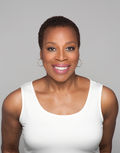Do you love your body? When you look in the mirror do you like what you see? Or are you like most women, 91% of whom are unhappy with their bodies? Research shows that body dissatisfaction is a prominent risk factor in the development and maintenance of eating disorders, but being positive about your body all the time can seem unrealistic and unattainable. It can create more pressure for a person who is already feeling anxious, devalued and negative.
So, how can we be more accepting of our bodies and guide our clients to do the same? Let’s examine three areas of body acceptance—body positivity (or body-positive), body neutrality and body liberation—to uncover ways to cultivate a healthier relationship with our bodies.
Body Positivity and Body-Positive
Body positivity is a social movement focused on the acceptance of all bodies, regardless of size, shape, skin tone, gender and physical abilities, while challenging present-day beauty standards as an undesirable social construct. It is focused on appreciating how the body functions instead of how it looks. This social movement originated from the fat acceptance movement in the 1960s and was created by and for individuals in marginalized bodies. It encourages unconditional body love, no matter what you look like. In recent years, however, this term has been commercialized and co-opted and often leaves out the very people for which it was created.
Keep in mind that having a positive body image is not the same as body positivity. Having body love, being body confident or having a positive body image is simply how you feel about your body. The way we feel about our bodies can be influenced by outside sources, especially social media. And these external influences can impact us in a negative or positive way regardless of how we look to others.
In theory, being positive about your body seems ideal, but if you are faking it or forcing it, being positive may seem disingenuous and inauthentic. If being positive is not attainable, body neutrality might be an option.
Body Neutrality
What if you can’t love your body every single day? You do not need to love or hate your body. Taking a body neutral approach prioritizes the body’s functions and achievements rather than its appearance, viewing the body through a neutral lens. No judgment, but also no forced positivity. Loving your body is not a requirement for loving yourself. Acknowledge that body love is not always realistic and attainable. Taking this body neutral approach can feel more natural to many people.
Body Liberation
Body liberation is saying that we are more than our bodies. It promotes inclusivity, body autonomy, fat acceptance and size diversity. It’s the freedom from systems of oppression, including weight stigma and size discrimination. And it creates a much safer space for all bodies to exist. A person’s self-worth is separate from their body and not determined by their appearance. This approach helps all bodies exist without judgment or discrimination.
All bodies are worthy, and all bodies deserve respect. Body liberation provides the freedom from social and political systems of oppression that designate certain bodies to be more worthy and more healthy and just more desirable than others.
The three areas of body acceptance can be summarized as follows:
- Body positive: “I love my body.”
- Body neutral: “I do not love or hate my body.”
- Body liberation: “I am more than my body.”
Challenging beauty ideals, learning to accept your body shape and focusing on improving fitness and quality of life instead of changing one’s weight, shape, size and appearance are crucial steps toward attaining a healthy body and body image. We have the power to change the way we see, feel and think about our bodies. Here are some mantras to help shift toward whatever avenue of body acceptance fits for you:
- I am worthy of respect and kindness.
- My worth is not determined by my appearance (weight, size, shape).
- I am learning to accept myself as I am.
- I will appreciate my body for all that it can do.
- I will not criticize or critique my body.
- I will not compare my body to others.
- I will not bully my body.
- I will not allow others to criticize, critique or bully my body.




 by
by 






 by
by